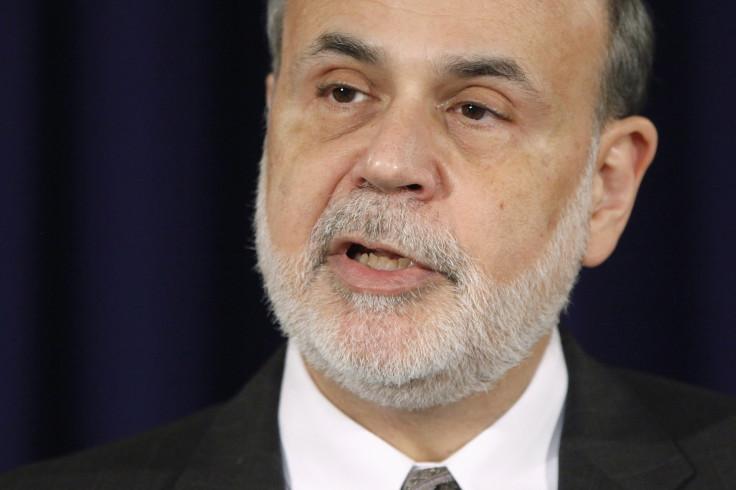Ben Bernanke Says Individuals, Not Companies Should Have Been Punished For 2008 Recession

Ben Bernanke, the former chairman of the U.S. Federal Reserve who advocated for Wall Street’s bailout during the 2008 financial crisis, now believes that more corporate executives and bankers should have been imprisoned for their role in one of the greatest financial disasters in the country.
“The Fed is not a law enforcement agency, the Department of Justice and others have been responsible for that. And a lot of their efforts have been to indict financial firms,” Bernanke said, in an interview with USA Today Sunday. “You can’t put a financial firm in jail. Everything that went wrong or was illegal was done by some individual, not by an abstract firm. ... There should have been more accountability at the individual level.”
Bernanke did not name the individuals he felt should have been targeted.
Bernanke, who left the Federal Reserve more than a year ago, faced a slew of criticism from the media and general public for his decision to bail out Wall Street at a time when a collapsing housing market and rising unemployment were hurting those on Main Street.
In the interview, Bernanke defended his decision, saying: “If we hadn't prevented the collapse of Wall Street, then Main Street would've collapsed as well.” He did, however, admit that the Fed had failed to communicate properly with the public and explain its actions.
“We were so focused on trying to fix the problems, stabilize the system that we didn’t have the time or the energy to really explain to the public to the extent that we should have perhaps exactly what we were doing, why were doing it, why it was essential for the health of the economy,” Bernanke said. “Even today, there’s still a lot of people who, I think, misunderstand what we did and why we did it, and there’s still hostility towards the Federal Reserve, politically.”
Bernanke cut the Fed’s key interest rate to zero in December 2008 to spur growth -- a level that has been sustained ever since.
“We didn’t think it would take that long,” Bernanke said, when asked if he had known that seven years later, interest rates would still be at their record-low levels. However, he refused to “second guess” the current Chairwoman Janet Yellen, who recently indicated that a rate hike is likely in the coming months.
© Copyright IBTimes 2025. All rights reserved.






















